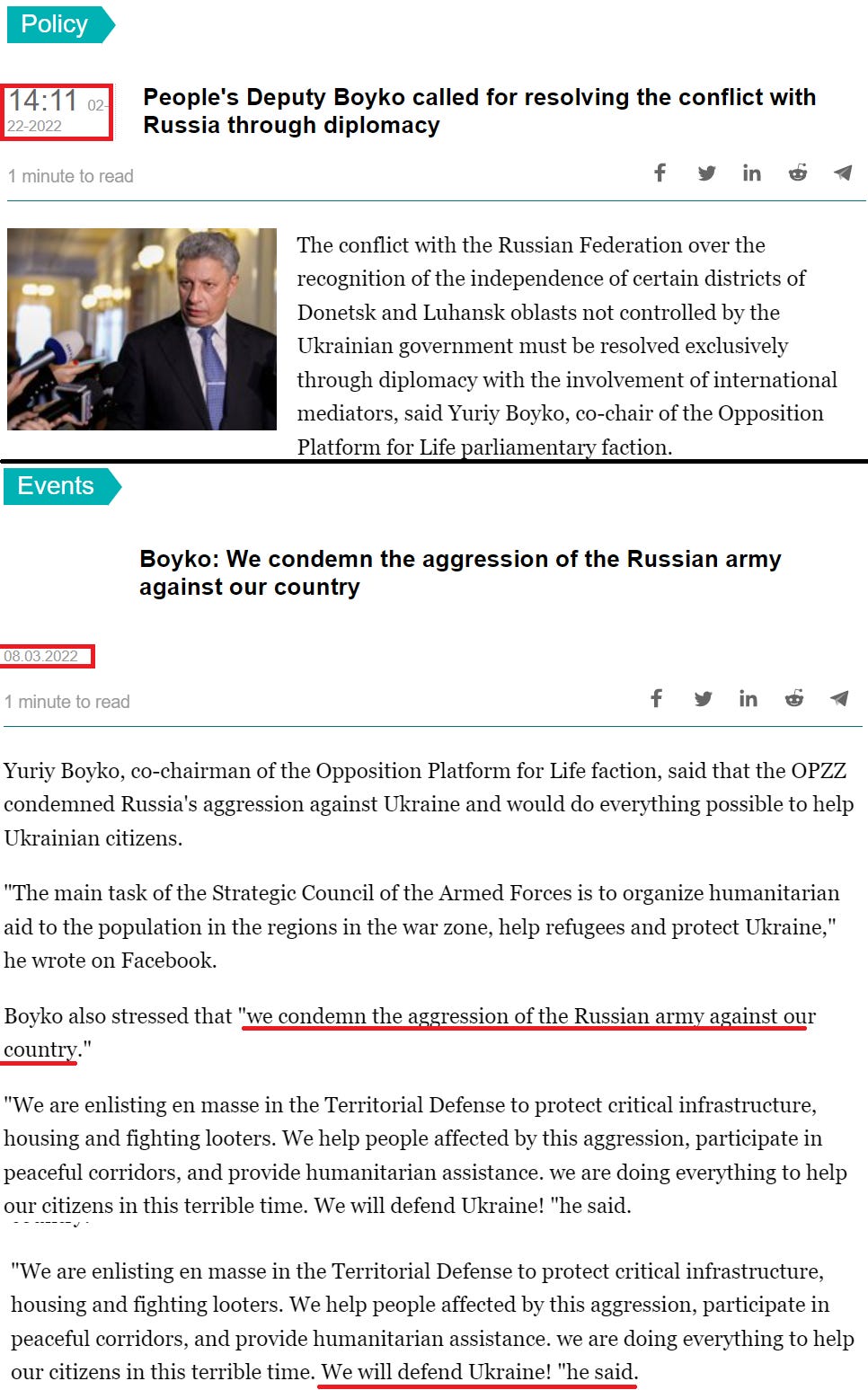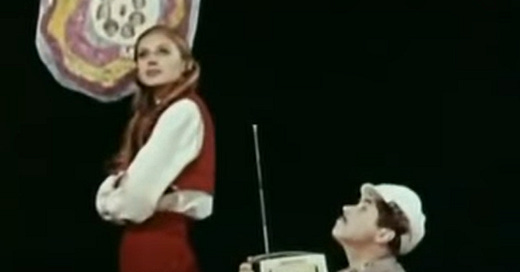Pining for neutral Ukraine
Whatever remains of Ukraine will likely become a permanent anti-Russia

Tuesday marked three months since the start of Russia’s “special military operation” in Ukraine, and there has been a great deal of lively commentary about Imminent Victory—for Ukraine and for Russia, depending on which Twitter accounts you follow. Such is the nature of the internet.
I do not wish to quarrel with anyone, split hairs, or rain on parades. But I do have a few observations to make.
On February 26—two days after the launch of Russia’s military operation—RIA Novosti published an op-ed that proclaimed the forthcoming reunification of the Rus’:
Russia is restoring its unity - the tragedy of 1991, this terrible catastrophe in our history, its unnatural dislocation, has been overcome. Yes, at a great cost, yes, through the tragic events of a virtual civil war, because now brothers, separated by belonging to the Russian and Ukrainian armies, are still shooting at each other, but there will be no more Ukraine as anti-Russia. Russia is restoring its historical fullness, gathering the Russian world, the Russian people together - in its entirety of Great Russians, Belarusians and Little Russians. If we had abandoned this, if we had allowed the temporary division to take hold for centuries, then we would not only betray the memory of our ancestors, but would also be cursed by our descendants for allowing the disintegration of the Russian land.
Like a bad omen, the article was deleted shortly after it went live. Unsurprisingly, western media had a field day with what appeared to be Moscow’s premature declaration of victory.
As a reminder: ensuring Ukraine did not become a permanent anti-Russia was a key objective of the “special operation.” Putin said as much in the early hours of February 24 when he announced his decision to send in troops:
Any further expansion of the North Atlantic alliance’s infrastructure or the ongoing efforts to gain a military foothold of the Ukrainian territory are unacceptable for us. Of course, the question is not about NATO itself. It merely serves as a tool of US foreign policy. The problem is that in territories adjacent to Russia, which I have to note is our historical land, a hostile “anti-Russia” is taking shape. Fully controlled from the outside, it is doing everything to attract NATO armed forces and obtain cutting-edge weapons.
For the United States and its allies, it is a policy of containing Russia, with obvious geopolitical dividends. For our country, it is a matter of life and death, a matter of our historical future as a nation.
As Putin saw it, Ukraine’s transformation into a US-sponsored anti-Russia would be far more than just a security threat for Moscow; it would be tantamount to a family divorce (something like 30% of Russians have relatives in Ukraine), with grievous consequences for Russia’s “historical future as a nation.”
I’m typically dismissive of attempts to read Putin’s mind, but it’s reasonable to assume Russia’s leader was afraid of losing Ukraine forever—a legacy no one in his position would want to be remembered for.
Which brings us to May 25, 2022.
The Ukrainian military will eventually be pushed out of Donbass. This was one of the stated objectives of the “special military operation” and so Team Z has every right to argue Russia will emerge victorious, if that’s how you want to measure victory.
But whatever remains of Ukraine will almost certainly become a permanent anti-Russia, and to deny this reality—or to shrug it off, or to pretend it doesn’t matter—is highly unadvisable.
In fact, Sergey Lavrov warned about this exact scenario back in 2018 (when the situation in Donbass was far more violent, I might add): intervening in Donbass would mean losing the rest of Ukraine.
In December 2018, four months after DPR leader Alexander Zakharchenko was assassinated, Russia’s foreign minister engaged in some rather lively geopolitical banter with Komsomolskaya Pravda:
Lavrov: Do you propose to recognize the DPR and LPR?
Komsomolskaya Pravda (KP): Certainly.
Lavrov: And further?
KP: And then we defend our territory, which we recognized.
Lavrov: And you want to lose the rest of Ukraine, leave it to the Nazis?
KP: I believe that the Nazi regime must be fought!
Lavrov: We will not fight with Ukraine, I promise you this. Sometimes the recognition of independence, as you are now proposing, of the DPR and LPR and the declaration of war (I can’t imagine how it is, how will Russia go to war with Ukraine?) - sometimes this is a manifestation of a nervous breakdown and weakness. If we want to keep Ukraine as a normal, sane, neutral country, we must make sure that everyone who lives in Ukraine is in a comfortable state.
I’m not pointing this out to dunk on Lavrov or anyone else for that matter.
What’s done is done.
But there should be more open and honest discussion about what is taking place. The anti-Russia that Putin set out to prevent is rapidly taking shape. Its formation has accelerated in the last three months.
It’s now basically illegal to be “pro-Russia” in Ukraine. Pre-February 24, Ukraine had a large “pro-Russia” political party (“pro-Russia” meaning “we would like to have normal, cordial relations with Moscow”). Yeah, I think those days are gone forever: Zelenskyy outlawed all (?) opposition parties—even after the “pro-Russia” opposition vowed to defend Ukraine from the Russian military.

In a popular Ukrainian folk song, an ambitious Cossack succeeds in “persuading” a young lady while chasing her through a cherry orchard. (Or something like that.)
Sounds like an easy in-and-out operation, but in reality, not so much. Especially when the damsel’s mom finds out and gives her daughter $40 billion in weapons to kill you with.




This is so true.
Right outside my window children are playing roadblock guards and moskals ("moskal" is a derogatory Ukrainian term for "Russian"). They have the mantra "moskal is your enemy" ingrained in their mind. To me, it looks almost surreal.
The best analysis of the situation, hands down. I'd even say it's bigly. You are becoming very Russian!! :))